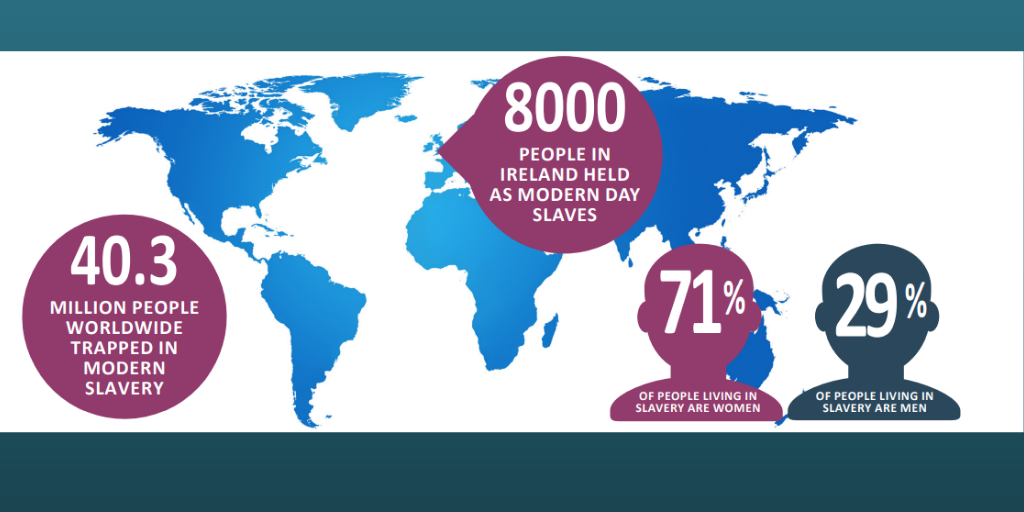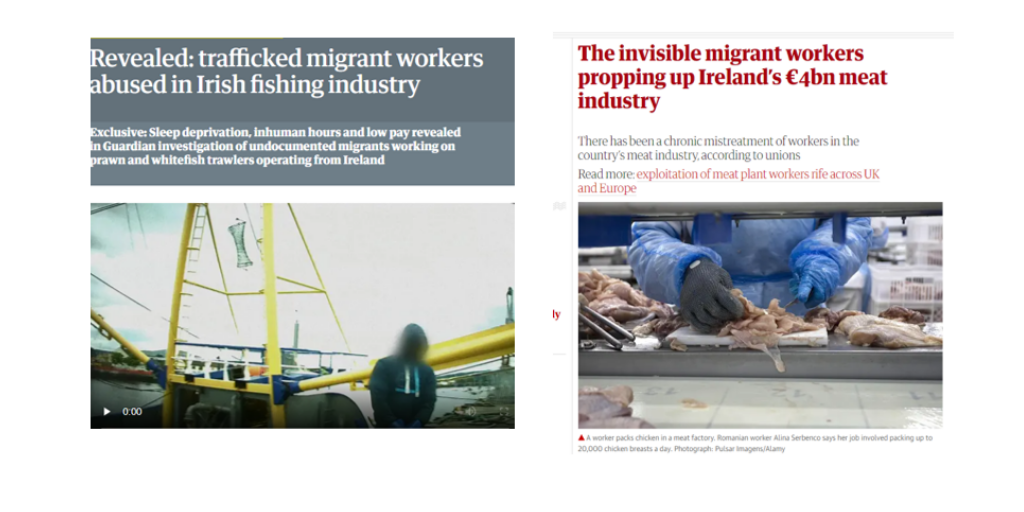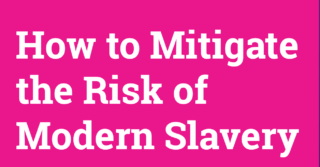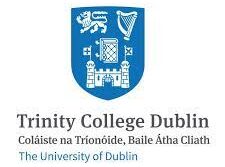Business & Human Rights in Ireland, What You Need to Know
Darina Eades, Senior Adviser on Corporate Sustainability, supports companies to integrate social and environmental sustainability into the core of their business strategies. She is our BITCI Expert on Business & Human Rights and recently spoke at our Sustainability Revolution event.Following on from the recent publication of How to Mitigate the risk of Modern Slavery, in this article Darina covers:
1) Why business action is needed to mitigate modern slavery
2) What your company can do to minimise the risks and what is expected from your business
3) How the new BITCI Guidance Tool can help your business
The 2020 National Benchmarking Report on Business & Human Rights in Ireland conducted in 2020 by the Trinity College Dublin’s Centre for Social Innovation found that 50 of the largest publicly listed companies in Ireland performed poorly across all areas of human rights disclosure, particularly in the area of due diligence disclosure. Companies need to focus on this area, not only because it is the right thing to do, but also because of the increased interest from investors, and on account of the forthcoming legislation: the new EU Directive will be applicable to listed and non-listed companies with over 250 employees, a turnover of €40 million and/or €20 million in total assets, and will require a description of the due diligence process undertaken by the company on human rights. Having a human rights policy, and embedding the arising practices across the business, will also enable companies to respond to ongoing interest from investors, clients and customers keen for ESG information and details of the business impact.
Why business action is needed to mitigate modern slavery
When Social Sustainability is talked about within a business context, it is often viewed in terms of the impact on employee relations and / or the need to ensure an inclusive and diverse workplace. These are vital and crucial areas to focus on to ensure ongoing business success. What can often be overlooked by companies however is the need to investigate if human rights are being upheld across all the operations of a business at all times, and if modern slavery is in any way at risk of infiltrating the company’s supply chain from Tier 1 downwards.
There is a perception that modern slavery doesn’t happen in Ireland; that it’s a far-away problem, but unfortunately that’s not the case. Modern Slavery is prevalent everywhere.
Modern Slavery is the term used to describe labour exploitation, forced labour and human trafficking. Human Trafficking is the recruitment, transfer or obtaining an individual through fraud, abduction or force. Trafficking is the fastest growing form of international crime and the 3rd largest criminal industry after drugs and arms trafficking.
WHY action is needed by business in this area:
- Ongoing research is showing that no single business world-wide can claim their operations and supply chain to be free of risk of Human Rights Infringements. Infringements are in fact on the rise globally. Infringements include: excessive working hours; the under-payment or non-payment of wages; non-payment of overtime and poor health & safety.
- The 2018 Global Slavery Index estimates over 40.3 million people worldwide are enslaved in some way, 71% are women. Over 8,000 people are estimated to be held as modern-day slaves in Ireland; 136,000 in the UK. It is very likely these figures are higher as cases are hidden.
High-Risk Sectors include: Agriculture, Construction, Apparel (such as the sourcing of Uniforms and T-Shirts); industries that use raw materials for component parts, Facilities Management (particularly the use of Recruitment Agencies by Sub-Contractors) in the areas of Cleaning, Security, Maintenance, Catering & Food – such as in the sourcing, packing and processing of fresh produce – fruit & vegetables, meat & fish. Migrant Workers and Refugees are particularly vulnerable to Debt Bondage.
Examples of Human Rights abuses in Ireland
A major cause of forced labour or hidden labour exploitation in the supply chains of many businesses is the charging of Recruitment Fees to Seasonal Workers, Migrant Workers or Workers Recruited through Labour Providers. This is known as Debt Bondage.
Unscrupulous recruiters charge Migrants a recruitment fee, accommodation expenses and travel costs. They are supported in setting-up a personal bank account but the Recruiter retains the migrant’s bank card, their passport and the vast majority of their wages, paying them only a miniscule amount each week to live on, as pay-back for securing the job, their daily travel expenses & most unsavoury accommodation. It is a frightening example of hidden labour exploitation and it is getting increasingly more common. Nobody should ever pay for a job, the costs of recruitment should always be borne by the employer, not by the worker.
Debt Bondage was highlighted in recent reports of severe labour abuses in the Irish Fishing Industry: an investigation by the Guardian in 2015 reported that workers from Ghana, the Philippines, Egypt & India, on boats from Cork to Galway were paid less than half the minimum wage, with no rest days. These undocumented migrants, working on Prawn, Scallop & White Fish trawlers operating from Ireland, experienced extreme sleep deprivation, inhuman hours and low pay. The Migrant Workers said they were controlled by debt to the Recruitment Agencies that recruited them, charging them substantial and illegal fees for placing them on boats and arranging visas that never materialised. The Migrants had no idea they would be working illegally, much less having no freedom, cheated of their wages, deprived of sleep, often very hungry and confined to the boats they were on, living in fear of being deported – Victims of Human Trafficking & Modern Slavery.
Positive Action
As an example of positive action, last year in April the Irish Government and International Transport Workers’ Federation agreed mechanisms to further protect Migrant Fishermen in Ireland from Modern-Day Slavery:
- Boat-owners will no longer be able to deduct the cost of work permits from Fishermen’s wages.
- All permit documents are to be supplied to Fishermen in their own language, along with a copy of their rest hours & payslips.
- The Workplace Relations Commission (WRC) now has an increased role to board vessels to spot-check permits, payslips & the rest hours provided to Fishermen & if they have concerns, to report the Vessel to the Marine Survey Office & the Gardai.
In order for your company for example to know where the fish and/or meat used by your catering contractor is coming from, the key activity to conduct is Human Rights Risk Management or Due Diligence.
Conducting Human Rights Due Diligence means taking the steps necessary to ensure the company is not involved in human rights infringements either through its direct actions, or indirectly, through the actions of sub-contractors, their recruitment agencies, any business relationships, subsidiaries and/or investments.
5 key steps to conduct Human Rights due diligence:
- A Risk Mapping Exercise of the Business’ Operations and Supply Chain will support the identification of the greatest areas of risk for the company. Often times these are in the areas of catering, cleaning, security, maintenance, on account of the use of sub contractors, and the sourcing of branded apparel – such as Uniforms & T-Shirts. The more you know about the practices of your Tier 1 Suppliers, and their Tier 1 and Tier 2 Suppliers, the easier it is to identify where the areas of risk might be.
- Assess the level of risk in each relationship. Prioritise risks based on the level of risk to people (this is known as salient human rights risks, a key component of the UN Guiding Principles on Business & Human Rights). Prioritise the risks also according to the reputation of the brand.
- Research the operations and locations so you can be secure about being transparent about the relationship.
- Become knowledgeable about the practices supplying companies themselves are using to identify risks of modern slavery, forced labour and hidden labour exploitation.
- Visit the Supplier and the Sites in person and ask questions from the people working there.
The research you do and the engagement you have through awareness-raising with suppliers, contractors and sub-contractors, is about inspiring and motivating them to take action, so that together you can work in partnership. The shared goal is to ensure the least possible risk of human rights violations, incidence of modern slavery or forced labour, in any of the company’s operations, or at any tier of the company supply chain. To be really sure, it is necessary to get to the voice of the worker regarding hours of work, pay and conditions and health and safety.
What is Expected from Business on Human Rights?
Drawing on the UN Guiding Principles on Business & Human Rights and the Guiding Principles Reporting Framework, what is expected is: Transparency on how the company is respecting Human Rights and what is being sourced, from what supplier and from which location.
A business should have:
- A Human Rights Policy – that would be separate to a Supplier Code of Conduct (to include what action will be taken if in breach)
- A Clear Process for Conducting Human Rights Due Diligence
- Human Rights Integrated throughout the Business: Governance Structure with clear lines of ownership & responsibility – nominated board member, day to day lead, budget assigned, cross functional involvement, champions in all areas. Training for procurement, cross functional team, leadership and suppliers That human rights is included in the strategy of the business, stakeholder engagement and decision-making.
- Human Rights Objectives that are Measured, Tracked & Reported
Being able to provide all this information will ensure companies are prepared for the new EU Corporate Sustainability Reporting Directive due in October 2022. The new Directive will be applicable to listed and non-listed companies with over 250 employees, a turnover of €40 million &/or €20 million in total assets and will require a description of the due diligence process undertaken by the company on human rights.
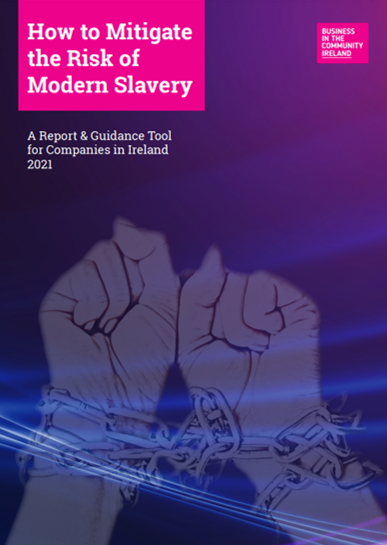 How to Mitigate the Risk of Modern Slavery will help you and your company to:
How to Mitigate the Risk of Modern Slavery will help you and your company to:
1- Understand human rights infringements and modern slavery in both a global and Irish context
2- Know about key legislative and other developments relevant to business in Ireland
3- Know the practical actions you and your company can take, to mitigate the risk and occurrence of modern slavery
4- Be equipped to conduct human rights due diligence, spot the signs of modern slavery, know what to do and who to contact, should any malpractice come to light.
Click here to download the publication.
BITCI can support you with:
- The development of a Human Rights Policy, Supplier Code of Conduct or Supplier Questionnaire
- Delivery of Awareness-Raising & Training on How to Mitigate the Risk of Modern Slavery with Procurement Staff, Cross Functional Teams & Tier 1 Suppliers
Take the time to read the Report, consider what support and guidance your company would benefit from, and get in touch with your account manager.
If are not a member and would you like to find out more visit the Join the Network section of our website.
Tags: human rights
